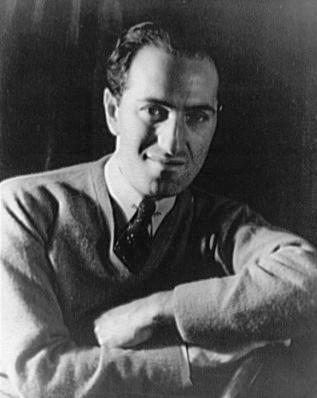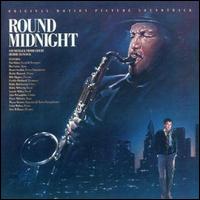Related Research Articles

George Gershwin was an American composer and pianist whose compositions spanned popular, jazz and classical genres. Among his best-known works are the orchestral compositions Rhapsody in Blue (1924) and An American in Paris (1928), the songs "Swanee" (1919) and "Fascinating Rhythm" (1924), the jazz standards "Embraceable You" (1928) and "I Got Rhythm" (1930), and the opera Porgy and Bess (1935), which included the hit "Summertime".

Ira Gershwin was an American lyricist who collaborated with his younger brother, composer George Gershwin, to create some of the most memorable songs in the English language of the 20th century. With George, he wrote more than a dozen Broadway shows, featuring songs such as "I Got Rhythm", "Embraceable You", "The Man I Love" and "Someone to Watch Over Me". He was also responsible, along with DuBose Heyward, for the libretto to George's opera Porgy and Bess.

The Pulitzer Prize for Music is one of seven Pulitzer Prizes awarded annually in Letters, Drama, and Music. It was first given in 1943. Joseph Pulitzer arranged for a music scholarship to be awarded each year, and this was eventually converted into a prize: "For a distinguished musical composition of significant dimension by an American that has had its first performance in the United States during the year."

This is a list of notable events in music that took place in the year 1927.

Porgy and Bess is an English-language opera by American composer George Gershwin, with a libretto written by author DuBose Heyward and lyricist Ira Gershwin. It was adapted from Dorothy Heyward and DuBose Heyward's play Porgy, itself an adaptation of DuBose Heyward's 1925 novel of the same name.
George Rochberg was an American composer of contemporary classical music. Long a serial composer, Rochberg abandoned the practice following the death of his teenage son in 1964; he claimed this compositional technique had proved inadequate to express his grief and had found it empty of expressive intent. By the 1970s, Rochberg's use of tonal passages in his music had provoked controversy among critics and fellow composers. A professor at the University of Pennsylvania until 1983, Rochberg also served as chairman of its music department until 1968. He became the first Annenberg Professor of the Humanities in 1978.

Rubin Goldmark was an American composer, pianist, and educator. Although in his time he was an often-performed American nationalist composer, his works are seldom played now. Today he is best known as the teacher of other important composers, including Aaron Copland and George Gershwin.

Robert Russell Bennett was an American composer and arranger, best known for his orchestration of many well-known Broadway and Hollywood musicals by other composers such as Irving Berlin, George Gershwin, Jerome Kern, Cole Porter, and Richard Rodgers.
Porgy and Bess, the opera by George Gershwin, has been recorded by a variety of artists since it was completed in 1935, including renditions by jazz instrumentalists and vocalists, in addition to operatic treatments.

Songs for Young Lovers is the seventh studio album by Frank Sinatra and his first on Capitol Records. It was issued as an 8-song, 10" album and as a 45rpm EP set, but it was the first Sinatra "album" not to have a 78rpm multi-disc-album release. In 2002, it was one of 50 recordings chosen that year by the Library of Congress to be added to the National Recording Registry.
The Second Rhapsody is a concert piece for orchestra with piano by American composer George Gershwin, written in 1931. It is sometimes referred to by its original title, Rhapsody in Rivets.
The following are the Pulitzer Prizes for 1973.
"But Not for Me" is a popular song originally written by George Gershwin and Ira Gershwin for the musical Girl Crazy (1930).

The Aeolian Building is a skyscraper in Midtown Manhattan in New York City, at 29–33 West 42nd Street and 34 West 43rd Street, just north of Bryant Park. The 1912 building was the fourth headquarters of the Aeolian Company, which manufactured pianos and other musical instruments. the 18-story building contained the 1,100-seat Aeolian Hall (1912–1927), a top concert hall of its day. The building stands next to the Grace Building.
Michael Moore is an American jazz bassist.

Girl Crazy is a 1932 American pre-Code musical film adaptation of the 1930 stage play of the same name. The film was very unlike the stage play except for its score. It was tailored for the comic talents of Wheeler & Woolsey, a popular comedy team of the time. Three songs written by George and Ira Gershwin for the play were retained: "Bidin' My Time", "I Got Rhythm", and "But Not for Me". According to RKO records, the film lost $150,000.

"That Mysterious Rag" is a song by Irving Berlin and Ted Snyder written in 1911. It was one of the earliest Berlin songs to become a commercial success with recordings by Arthur Collins & Albert Campbell and by the American Quartet being very popular in 1912.

Round Midnight is a soundtrack album by Herbie Hancock featuring music recorded for Bertrand Tavernier's film Round Midnight released in 1986 on Columbia Records. The album features performances by Hancock, trumpeter Freddie Hubbard, bassist Ron Carter, drummer Tony Williams, vocalist Bobby McFerrin, tenor saxophonist Dexter Gordon, bassist Pierre Michelot, drummer Billy Higgins, guitarist John McLaughlin, trumpeter/vocalist Chet Baker, vibraphonist Bobby Hutcherson, saxophonist Wayne Shorter, vocalist Lonette McKee, and pianist Cedar Walton, most of whom appear in the film. It won the Academy Award for Best Music, Original Score in 1986, beating Ennio Morricone's The Mission and Jerry Goldsmith's Hoosiers, among others. Additional music recorded during the making of the film was released under Dexter Gordon's name as The Other Side of Round Midnight (1986).
String Quartet No. 2, Musica Instrumentalis (1997) is a string quartet by Aaron Jay Kernis, inspired by renaissance and baroque dances, composed for the Lark Quartet and awarded the Pulitzer Prize in 1998, with a special citation to George Gershwin. His first quartet being named Musica celestis:
My new string quartet started off because I wanted to deal with baroque dance forms and medieval dance rhythms. There wasn't an image—it developed from purely musical ideas. This was a case where the piece turned out to be formally very different from what I first expected. I thought it would be five movements, but I started cannibalizing one movement into another and wound up with three. The first movement is like a dance medley, with a first big A section and a closing A section that is a development of the opening medley. Stuck in the middle of these two A's is a minuet and trio that originally was an entirely separate movement. While working on the first movement, I decided that the relaxation that I needed between those A sections was one of the smaller movements I'd already conceived. So I took one and squashed it in. That's one way that a piece can become significantly transformed during the act of composition.

The Modern Jazz Quartet Plays George Gershwin's Porgy and Bess is an album by the American jazz group the Modern Jazz Quartet performing the score to George Gershwin's opera Porgy and Bess recorded in 1964-65 and released on the Atlantic label.